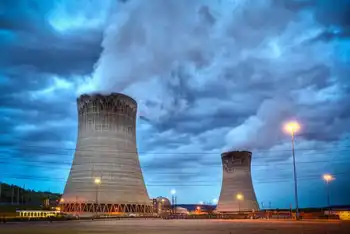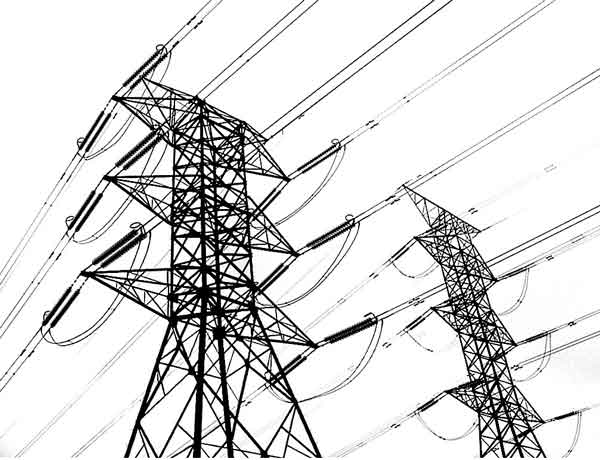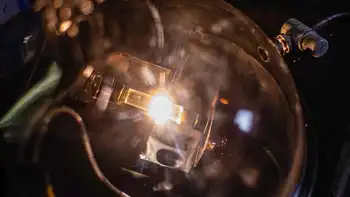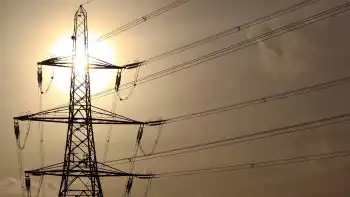Warren BuffetÂ’s big battery play
David Sokol, the chairman of an Iowa-based utility holding company called MidAmerican Energy Holdings, which is 80 percent owned by Warren Buffett's Berkshire Hathaway, has for the most part been quieter. But Sokol and MidAmerican Energy have been positioning their business for a low-carbon future.
MidAmerican's investments in wind power mean that it generates more power from renewable source than any other regulated utility, as best as I can tell. It was Sokol, at Buffett's request, who engineered MidAmerican's investment in BYD, the Chinese battery-maker and auto company that is building low-cost electric cars. And now there's more news from MidAmerican, and you heard it here first: The company will soon begin testing batteries from BYD that, if all goes well, could store electricity on a large scale at a reasonable cost.
That's a big deal.
"We've never really had storage capability on utility systems," Sokol told me recently, by phone. "Given the progress BYD has made on the technology of batteries for electric vehicles, the question is, how do we ramp that technology up so that we can use it for multiple purposes in the utility world?
"Probably the most obvious is the ability to store intermittent renewable resources, such as wind or solar," Sokol said.
Put simply, cheap battery storage at scale would address one of the biggest drawbacks to wind and solar energy, which is that, unlike coal or nuclear power, they are unpredictable — you can only make electricity when the wind is blowing or the sun is shining.
"If you can store electricity when the wind blows, and have it available when you need it, that argument goes away," Sokol says. But he cautions: "There's a fair bit of distance between here and there."
Just a few details: This fall, MidAmerican will build a 2 megawatt storage facility using BYD batteries at an existing substation in Portland, Oregon, where it operates the local utility, Pacific Power. BYD, meanwhile, is building a bigger storage facility in China, and plans to build a third one in a still-undisclosed location on in southern California. That's about all I can tell you because BYD is reluctant to talk about its research.
The 2 megawatts of battery storage in Portland will allow MidAmerican to test BYD batteries to see how well they charge, what control systems are needed to discharge the electricity and to analyze their reliability and cost. "It will let us do a fair amount of testing to understand the economics of a 100 or 200 megawatt storage facility to back up wind," Sokol says.
Currently, electricity can't be stored economically on a large scale except in systems that pump water uphill, then release it to generate hydropower. So-called pumped-storage systems, however, often consume more energy than they generate; they make sense only because water can be pumped uphill using cheap off-peak power, then released so the electricity can be sold during periods of peak demand when prices are higher.
Low-cost battery storage would be a dramatic improvement over pumped storage for many reasons, not the least of which is that the batteries could be located in urban areas where electricity demand is high.
Sokol has credibility when he talks about energy and environmental issues, in part because of his association with the plain-spoken Buffett but mostly because of MidAmerican's own track record. "For the last six years, we have been very focused on trying to move our overall portfolio to the lowest carbon footprint possible," he says.
"We're building every wind and geothermal project that we are able to."
A thoughtful and unpretentious Omaha native, Sokol is a student of business and author of a slim and insightful volume of management advice called Pleased But Not Satisfied. MidAmerican, whose subsidiaries provide electricity and natural gas to nearly 7 million customers in the Midwest, Pacific Northwest, Rocky Mountain states and the UK, had about $12.7 billion in revenue last year.
About 24 percent of MidAmerican's generating capacity now comes from renewable or noncarbon fuel sources, including wind, geothermal, hydroelectric and biomass. About 50 percent comes from burning coal, which is about the same as the U.S. average, but its PacifiCorp subsidiary caused a stir back at the end of 2007 when it said it would scrap plans for new coal-fired power plants in Wyoming and Utah, in part because of concerns about climate change.
When we met last December in New York, Sokol explained to me that he is a big believer in electric cars because electric engines are far more efficient than those that burn gasoline.
An all-electric vehicle–even one powered by today's U.S. mix of electricity generation — produces about 20 percent of the greenhouse gas emissions of a gasoline-powered car that gets 20 miles per gallon. As battery prices come down, electric cars will be both cheaper to drive and cleaner than today's fleet. Just recently, BYD and Volkswagen agreed to work together on electric cars.
Sokol nevertheless opposes the Waxman-Markey climate change bill approved by the House energy committee. In an opinion piece in The Washington Post, he wrote that the legislation will place an undue burden on consumers because it requires utilities to pay for allowances to emit CO2 and creates a complex and unnecessary trading scheme:
“The real hidden catch of the cap-and-trade system, though, is that it will require consumers to pay twice: first for emission allowances and then for the construction of new low- and zero-carbon power plants.”
Sokol did say, however, that the electricity sector can achieve the 83 percent reduction in greenhouse gas emissions by 2050 mandated by the bill. Getting there will require advanced technologies like the electric cars, large-scale batteries and solar photovoltaic panels being developed by BYD.
Founded in 1995, BYD now employs 130,000 people in 11 factories, eight in China and one each in India, Hungary, and Romania. If nothing else, the company has demonstrated that it can move fast. "Working with them," Sokol says, "is sort of like watching bamboo grow."
Related News

Energy storage poised to tackle grid challenges from rising EVs as mobile chargers bring new flexibility
LONDON - The impacts of COVID-19 likely mean flat electric vehicle (EV) sales this year, but a trio of new reports say the long-term outlook is for strong growth — which means the electric grid will need to respond.
As EV adoption grows, newer vehicles will put greater stress on the electric grid due to their larger batteries and capacity for faster charging, according to Rhombus Energy Solutions. A new white paper from the company predicts the cost of lithium-ion batteries will drop by 60% over the next decade, helping enable a new set of charging solutions.
Meanwhile, mobile and…




